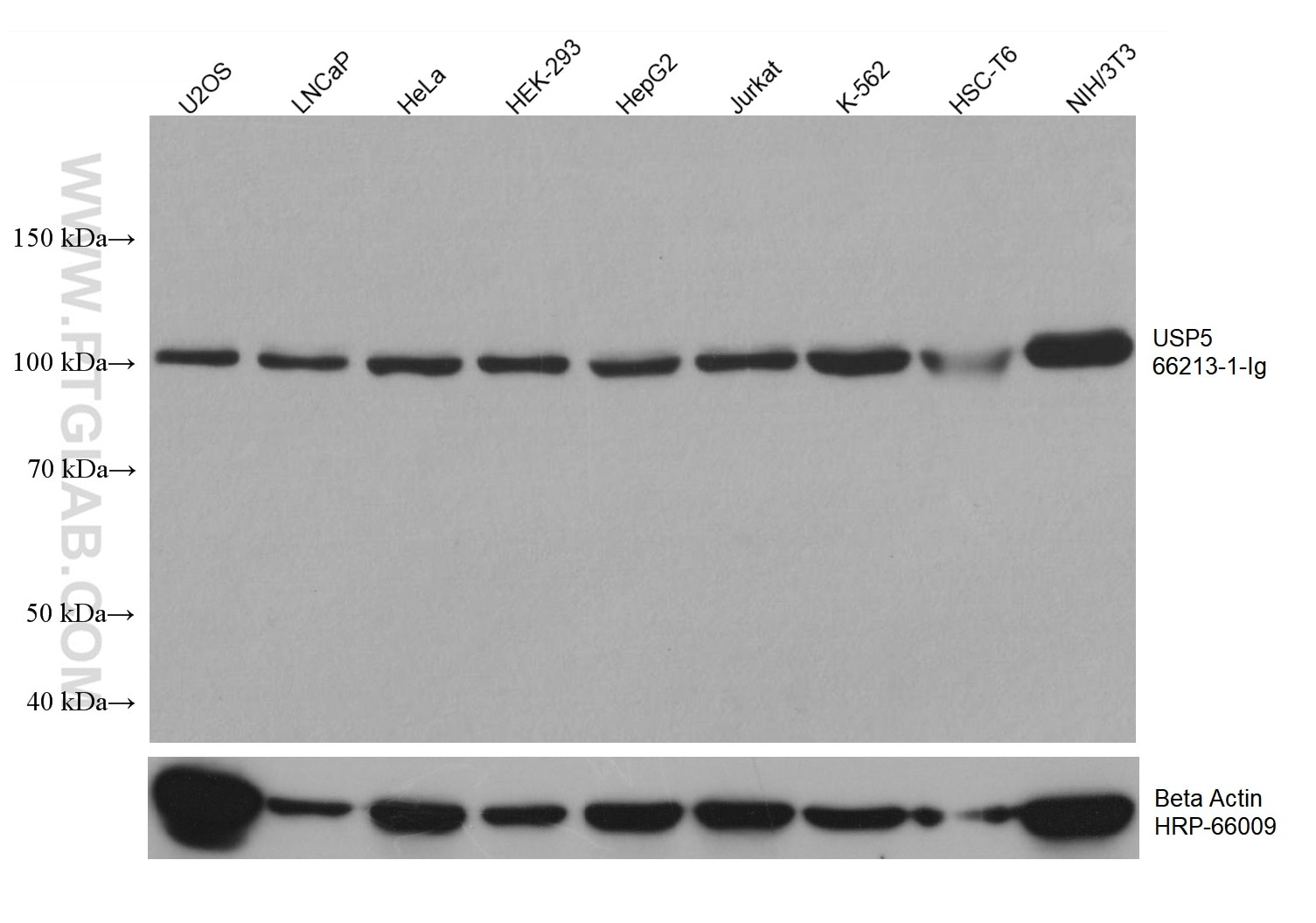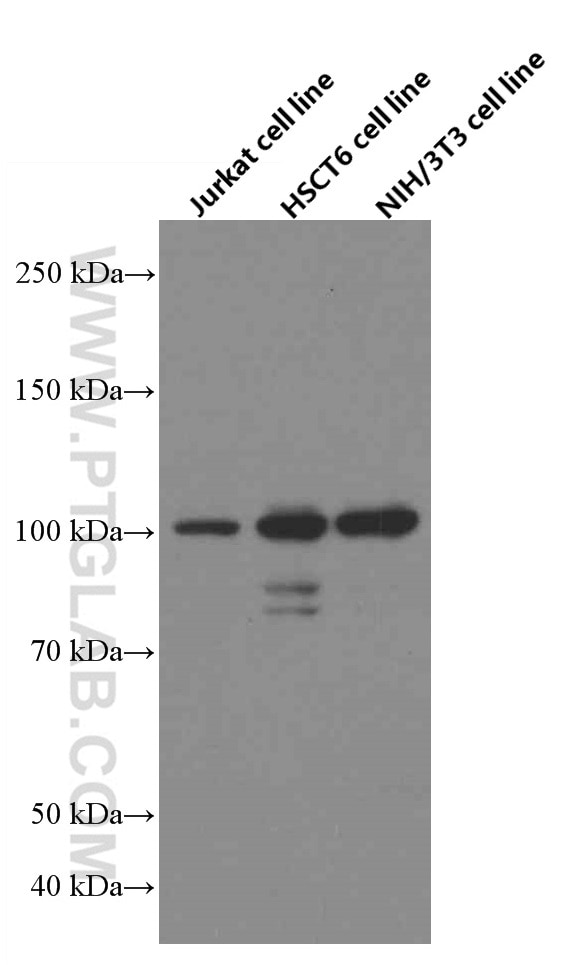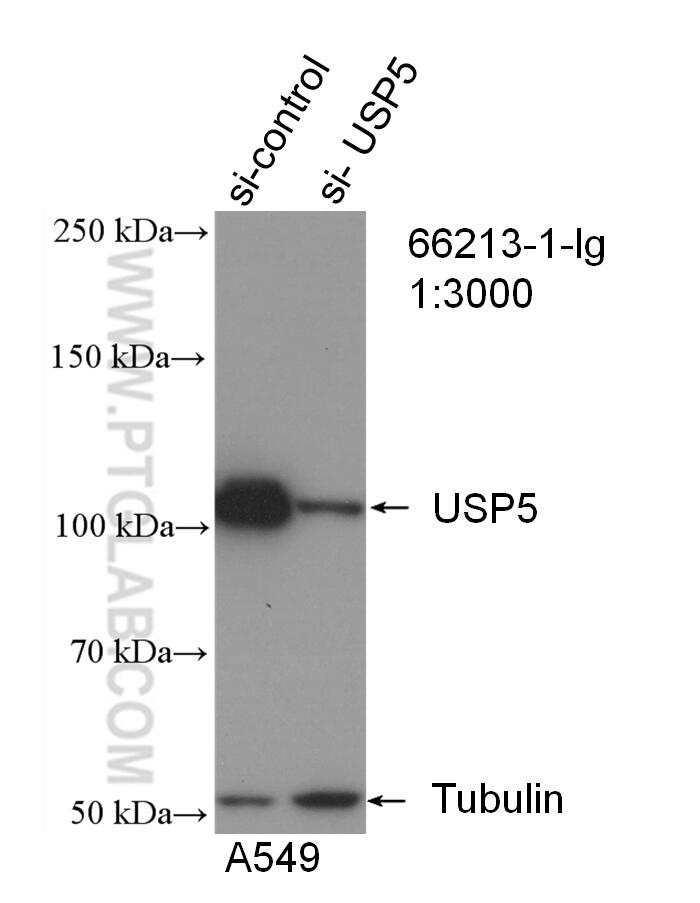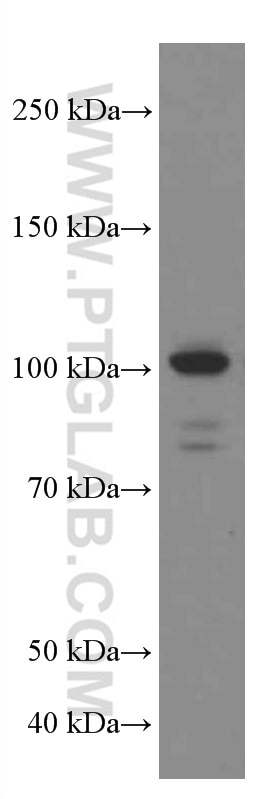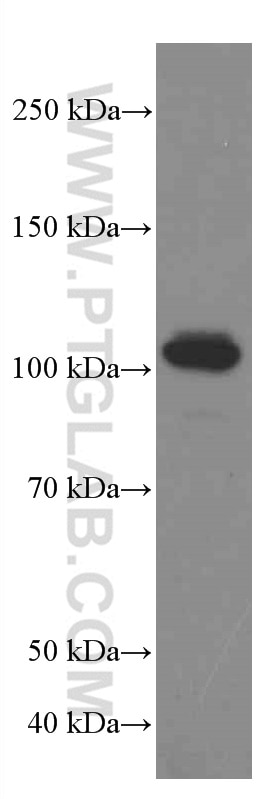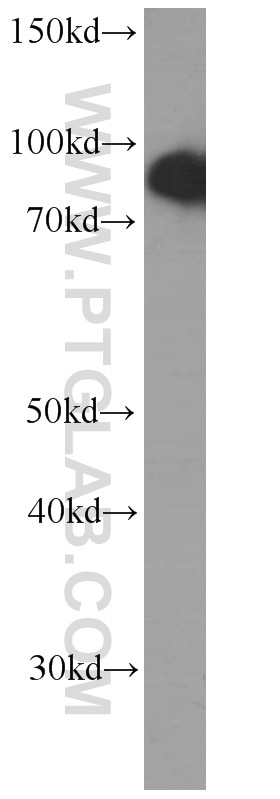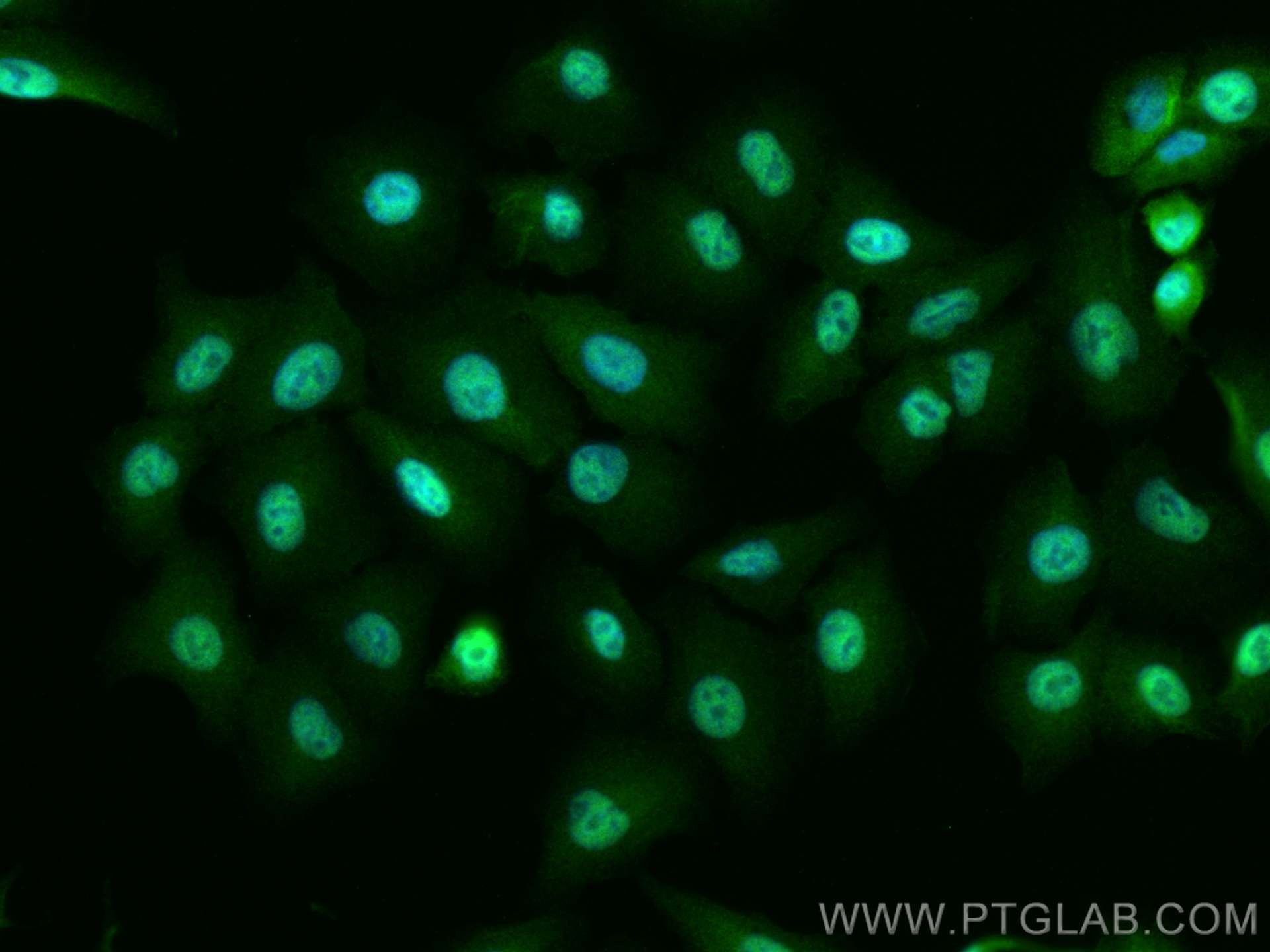- Phare
- Validé par KD/KO
Anticorps Monoclonal anti-USP5
USP5 Monoclonal Antibody for IF, WB, ELISA
Hôte / Isotype
Mouse / IgG2a
Réactivité testée
Humain, rat, souris
Applications
WB, IF, ELISA
Conjugaison
Non conjugué
CloneNo.
3F12C10
N° de cat : 66213-1-Ig
Synonymes
Galerie de données de validation
Applications testées
| Résultats positifs en WB | cellules U2OS, cellules A549, cellules HEK-293, cellules HeLa, cellules HepG2, cellules HSC-T6, cellules Jurkat, cellules K-562, cellules LNCaP, cellules NIH/3T3 |
| Résultats positifs en IF | cellules A549, |
Dilution recommandée
| Application | Dilution |
|---|---|
| Western Blot (WB) | WB : 1:2000-1:10000 |
| Immunofluorescence (IF) | IF : 1:200-1:800 |
| It is recommended that this reagent should be titrated in each testing system to obtain optimal results. | |
| Sample-dependent, check data in validation data gallery | |
Applications publiées
| WB | See 1 publications below |
| IF | See 1 publications below |
Informations sur le produit
66213-1-Ig cible USP5 dans les applications de WB, IF, ELISA et montre une réactivité avec des échantillons Humain, rat, souris
| Réactivité | Humain, rat, souris |
| Réactivité citée | rat, Humain |
| Hôte / Isotype | Mouse / IgG2a |
| Clonalité | Monoclonal |
| Type | Anticorps |
| Immunogène | USP5 Protéine recombinante Ag7575 |
| Nom complet | ubiquitin specific peptidase 5 (isopeptidase T) |
| Masse moléculaire calculée | 96 kDa |
| Poids moléculaire observé | 95-105 kDa |
| Numéro d’acquisition GenBank | BC005139 |
| Symbole du gène | USP5 |
| Identification du gène (NCBI) | 8078 |
| Conjugaison | Non conjugué |
| Forme | Liquide |
| Méthode de purification | Purification par protéine A |
| Tampon de stockage | PBS avec azoture de sodium à 0,02 % et glycérol à 50 % pH 7,3 |
| Conditions de stockage | Stocker à -20°C. Stable pendant un an après l'expédition. L'aliquotage n'est pas nécessaire pour le stockage à -20oC Les 20ul contiennent 0,1% de BSA. |
Informations générales
USP5, also named as ISOT, belongs to the peptidase C19 family. Knock-down of USP5 causes the accumulation of TP53/p53 and an increase in TP53/p53 transcriptional activity because the unanchored polyubiquitin that accumulates is able to compete with ubiquitinated TP53/p53 but not with MDM2 for proteasomal recognition. USP5 is a potential target for p53 activating therapeutic agents for the treatment of cancer(PMID: 19098288). It is a novel proteasome associated protein(PMID: 19182904). USP5 cleaves linear and branched multiubiquitin polymers with a marked preference for branched polymers.
Protocole
| Product Specific Protocols | |
|---|---|
| WB protocol for USP5 antibody 66213-1-Ig | Download protocol |
| IF protocol for USP5 antibody 66213-1-Ig | Download protocol |
| Standard Protocols | |
|---|---|
| Click here to view our Standard Protocols |
Publications
| Species | Application | Title |
|---|---|---|
Nat Commun ERK and USP5 govern PD-1 homeostasis via deubiquitination to modulate tumor immunotherapy | ||
